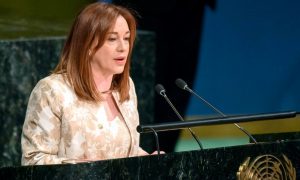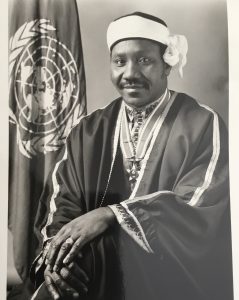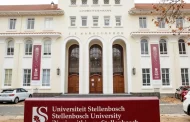The president of the UNGA cannot personalise the office and do whatever he wants in a rule and precedence saturated space such as the UN. But it is a very symbolic position and, in the age of norms, symbolism is power. Nigerians are, therefore, not wrong in celebrating the eventual or formal election of Prof Tijani Bande to preside over the impending session. If diplomacy is not about aimless lying on behalf of a country by some gentlemen but about the role of interpretation in the articulation of national identity, then the emergence of a Nigerian Professor of Political Science as President of the United Nations General Assembly qualifies to be considered a value added to Nigerian and Africa’s diplomacy at the UN.

Ecuador’s Maria Fernanda Espinosa, the out-going President of the just ended 73rd session
At the personal level, Bande comes to the job well prepared even if only that he attended a global front rank university such as Toronto. It is commonsensical that if you are going to the theatre of global power, then it helps if you speak the language of the most powerful or what they can understand. The University of Toronto, along with a few hundreds of them around the world, is not just a university but a particular training ground in the language of global power.
There is something instructive that much of the global media – Aljazeera, Fox News, Xinhua, The Washington Post, to name a few, have given him liberal coverage, although nearly all of them relying on an AP story. That’s nevertheless an endorsement. They have particularly recalled that this is the second time Nigeria would be mounting the seat. That’s a reference to General Joseph Garba’s presidency of the forty-fourth session of the General Assembly from 1989 to 1990. It must also be a reference to an activist national presence within the UN system, from when the diplomatic brilliance of her diplomats in the 1960s made their colleagues to wonder where they were trained to recent years when, aside from General Garba, there have been a continuity in professors Ibrahim Gambari; Joy Ogwu, Amina Mohammed and now Bande.

The late Gen Garba, presided over the 44th session
The message is, although Nigeria itself is troubled domestically, it is well behaved in terms of international peace. It has no history of looking for other people’s trouble.
As a candidate of one of the numerous blocks in that system, this time, the African block, Prof Bande’s election also speaks to Nigeria’s influence on the ECOWAS sub-region and to Africa’s confidence on her. This, therefore, becomes a challenge for Nigeria to sit up at home because, as at today, it is open to question if Nigeria is providing Africa the qualitative leadership it is expected to provide by virtue of its human and material over – endowment, relative to other African countries.
No one forgets that the UN is a creation of power but no one also disagrees that it exercises a lot of power. It is a cheerful story that Prof Bande has listed issues such as universal health coverage, counter terrorism, gender equity, eradication of poverty and hunger and climate change as areas of global attention in the impending UN year.




























